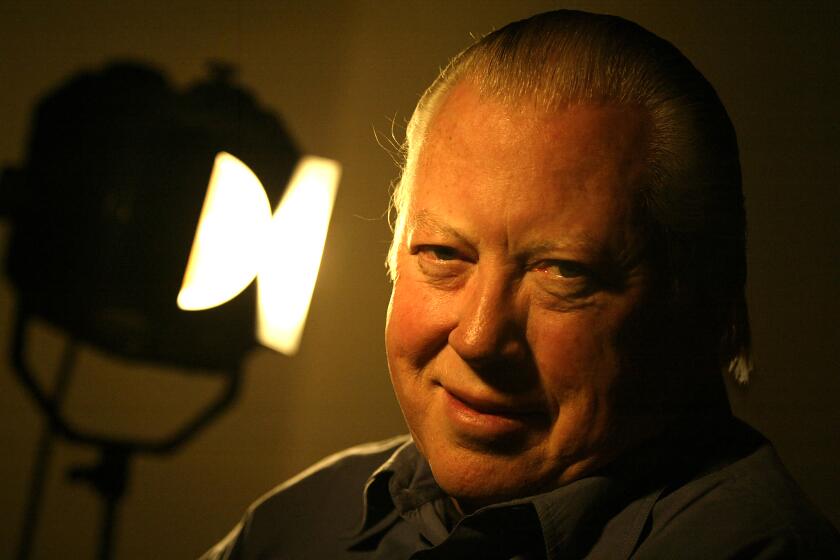Nonprofits Yet Another Victim of Dow Rout as Grants Drop Off
Dean Gladden never imagined that the Dow could dictate the season lineup at the Cleveland Playhouse. But it has.
The stock market rout has forced Gladden to stage only plays with small casts because he doesn’t have enough money to hire lots of actors.
Nonprofit programs across the nation face an equally painful pinch. It’s not because they invested in stocks. Most have barely enough cash to pay the rent, much less to gamble on Wall Street. But the foundations they depend on for grants do invest--and many have taken a tremendous hit.
Endowments have tumbled. Income has dried up. And many foundations have been forced to reduce grants, delay payments or cut off nonprofits that have depended on them for years.
“This is one of the untold side effects of the stock market. It’s that trickle-down,” said Joel Goldenbach of Casita Maria, a New York social service agency that relies on grants.
Almost overnight, hundreds of millions of grant dollars have evaporated, jeopardizing tutoring programs and domestic violence shelters, fisheries monitors and ethnic dance troupes, job training services and physician visits to the homebound elderly. Foundation directors, desperate to save their shriveling endowments, predict that even more grants will be yanked next year.
“This is the first time in my life I’ve rooted for the rich people,” sighed one social activist whose grants are in jeopardy--and who has taken a sudden interest in the twists and turns of the Dow Jones industrial average.
The Dow plunged to a four-year low Friday, losing 390 points to finish at 8,019.
The blue-chip index is now off nearly a third since hitting a peak of 11,722 on Jan. 14, 2000.
The foundation perhaps hardest hit by the bear market has been the David and Lucile Packard Foundation in Los Altos. Its endowment is invested almost entirely in the stock of computer company Hewlett Packard. And it has lost nearly 75% of its value in the last two years.
The result: The foundation will award just $250 million in grants this year, compared with $615 million in 2000.
Another Bay Area group, the Valley Foundation in Los Gatos, cut its awards about 15% this year and predicts another 15% cut, at least, in the next cycle of handouts. That means $1 million less for arts organizations in Santa Clara County.
The story echoes across the country. In Atlanta, the Robert W. Woodruff Foundation has trimmed at least $10 million from its grant pool in the last two years. And at the Central Indiana Community Foundation, President Brian Payne says, with a forced chuckle: “I think our threshold for pain has been crossed just in the past couple of days. We’re evaluating what’s going to have to go. We don’t know the answers yet, but certainly, we’re going to have less money to give.”
Foundations generally adjust their giving to reflect their financial health over the previous 12 to 36 months. So even if stocks roar back, the dismal returns this year and last could continue to drag down grant awards through 2005.
“What we’re hearing right now is only distant thunder. Next year is going to be a lot worse. The year after that, watch out,” predicted Jack Shakely, president of the California Community Foundation in Los Angeles. He has watched his endowment shrink by $60 million in the last two years.
Shakely has warned even his favorite nonprofits that they had better start seeking other funds. One potential target: the Read With Me program, which gives preschool children a free backpack full of books and then tutors them on how to “read” the stories to their parents.
“We’ll be making far fewer grants next year,” Shakely said. “I’m sorry about it, but that’s the truth.”
The cutbacks are not by any means universal.
Some foundations with limited stock exposure have held steady. The Bill and Melinda Gates Foundation, for example, has done quite well by its investing in bonds. It does not hold a single share of Bill Gates’ Microsoft Corp.
Other foundations have lost significant sums but are determined to ride it out. The New York Community Trust endowment stands at $1.72 billion, down from more than $2 billion when the stock market was flying high. But the trust has cut such administrative expenses as travel and advertising to avoid reducing grants.
“We anticipate that we’re going to be OK,” spokeswoman Ani Hurwitz said.
In response to the Wall Street woes, some foundations have begun to shift the type of grants they offer. A few have stopped funding expensive capital projects, such as new buildings.
Others have cut back on grants for arts and environmental projects, reasoning that help for the hungry and homeless is more vital in a recession. Start-up projects are also unlikely to get grants these days; foundations are directing what money they have to programs with good track records.
“We’re trying to [focus giving] on projects that can clearly be sustained even in a bad economy,” explained Charles H. McTier, president of the Woodruff Foundation.
A few foundation directors are even experimenting with ways to help nonprofits without writing checks--by holding seminars in such skills as accounting or public relations.
“A lot of foundations understand that times are tough for them, but they’re tough for their grantees too, so they’re trying very hard not to cut back,” said Dot Ridings, president of the Council on Foundations, a trade group for grant givers.
For some nonprofits, however, the year has already proved a disaster.
The Pacific Marine Conservation Council, which works to preserve sustainable fisheries, lost its entire grant from the Packard Foundation. That wiped out 35% of the council’s budget. Directors are scrambling to come up with other grants to plug the hole. But there are few to be had. “Everyone’s tightening up,” said Bob Eaton, the executive director.
Packard also was unable to renew a $10,000 grant for the Masterworks Chorale, an adult choir based in San Mateo. Without that money, which represented about 8% of its budget, the choir has had to adjust its repertoire. No longer can it perform majestic pieces, such as Beethoven’s Ninth Symphony, because it can’t afford a full orchestra to back it up. At a recent concert, the 60 singers performed with just two pianos as accompaniment.
“It lets your audience down when you have to scale back like that,” said Sean McNeal, the executive director.
The cuts in foundation grants are especially devastating to nonprofits this year because other donations are also down.
Corporate giving plunged 14.5% last year; this season does not look to be much better. Individual donations are also iffy, with some agencies reporting that supporters are less willing to buy tickets to gala benefits.
Some chapters of the United Way fell so far short of campaign goals that they have had to slash grants to social service agencies. State governments are also cutting back grants to nonprofits in a struggle to balance budgets.
And this is all happening at a time when need is soaring, especially for programs to help the poor and jobless.
“Over the last couple of years, our requests are up substantially, so we’re probably having to disappoint more people,” said David Morse, a spokesman for the Robert Wood Johnson Foundation.
Count Dean Gladden among the disappointed.
Four of the Cleveland Playhouse’s most loyal corporate sponsors have either pulled out or sharply reduced their gifts. A local foundation that had contributed $75,000 last year could not renew the pledge. Another cut way back. All told, Gladden has had to cut $1 million out of a $7.5-million budget.
That means he can hire just 55 actors for his eight shows this season. And that means no more extravaganzas like the blockbuster musical he delighted in staging last year.
“Certain plays don’t even get on the table,” said Gladden, the theater’s managing director.
At least he can still put on performances.
Cleveland dancers Tom and Susanna Evert aren’t so sure they’ll be able to keep their small troupe on stage. They were hoping for a $20,000 grant this year from the Gund Foundation. They got $5,400 instead.
The Everts are frantically soliciting money from individual supporters. But “to miss a few grants, even though the amounts are small, is crippling,” Tom Evert said. “If we can’t fund our operations ... we can’t dance.”
More to Read
The biggest entertainment stories
Get our big stories about Hollywood, film, television, music, arts, culture and more right in your inbox as soon as they publish.
You may occasionally receive promotional content from the Los Angeles Times.






